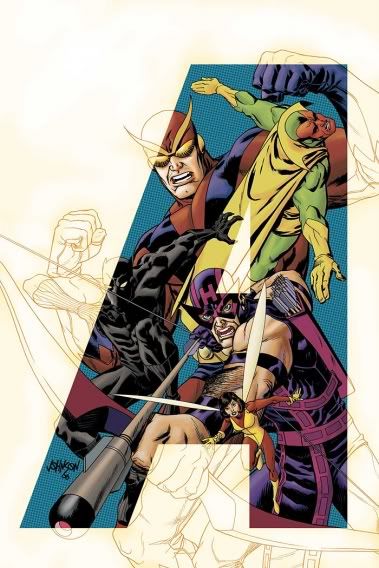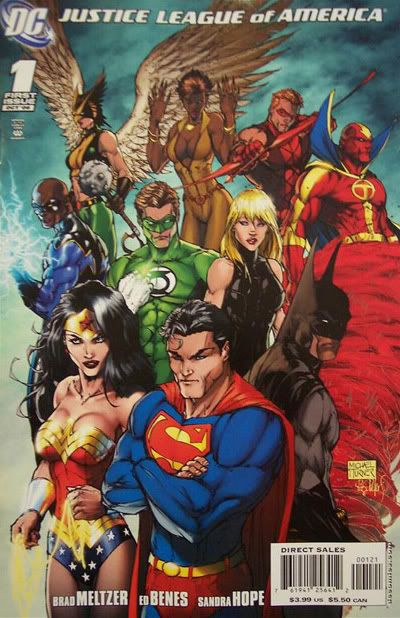She-Hulk #8: DestroyAllWarriors.com
 She-Hulk #8
She-Hulk #8Writer: Dan Slott
Artist: Paul Smith
*SPOILERS* follow
Synopsis: In the midst of the controversy over superhero registration, former New Warriors Justice and Rage come to Jen Walters for legal help.
It seems that following the tragedy in Stamford, a hate site called DestroyAllWarriors.com has been 'outing' members of the New Warriors team. Their real names and addresses are posted and shared with the world, and several members found themselves on the receiving end of violent attacks.
So She-Hulk takes the matter to court, suing to have the website shut down. Several witnesses are heard, including the website's financial backers and Iron Man. After the second day of court, Iron Man gives She-Hulk the name and address of the person behind the website: Carlton LaFroyge, a.k.a. former New Warrior Hindsight Lad.
Analysis: To prevent this from being an unreasonably long post, I decided to split my review over two posts. This first post is going to be a look at the realism of the events as they're presented in the issue, and the second post is going to take a closer consideration of the legality of the DestroyAllWarriors.com website.
I'll admit upfront that I'm not terribly familiar with the New Warriors, though I don't think that much affects my reading. I will say that Hindsight Lad has the dumbest hero name I've heard outside of the Legion of Substitute Heroes, and Rage has the most ridiculous superhero costume I've ever seen, period. The guy walks around shirtless with a painted-on kitty face. Despite having a name like "Rage," he looks about as intimidating as a clown.
The legal case is identified as New Warriors v. eScape Enterprises. Apparently, not unlike the Fantastic Four, the New Warriors are an incorporated entity. And presumably, either Rage or Justice is a corporate officer, capable of bringing the suit. The case appears to get before a judge within a day or two, but fortunately, we never see a jury.
That's a good thing, too, because what we're being shown is not a jury trial (regardless of whether Slott intended it to be one). Given the nature of the complaint, and the timing of the action, what we're seeing is (or should be) a hearing for a temporary injunction. It naturally takes time for a case to reach trial, but circumstances might allow for the court to force the website to be taken down, pending a future verdict and determination as to whether a permanent injunction should be imposed.
Witnesses may be heard at the temporary injunction hearing, but probably not the witnesses we see in this issue. (Witnesses which include, oddly enough, Haley Joel Osment.) In this type of lawsuit, the question posed is whether the website is protected speech under the First Amendment, or whether it consists of unprotected threats. (More on that distinction in my next post.)
The first three witnesses are the financial backers of DestroyAllWarriors.com. (One wonders how expensive this website must be, to require multiple financial backers.) After they're cross-examined, She-Hulk tells her clients "I'm not gonna redirect. My earlier questions established that they're funding the site." That might be relevant at trial, especially if the plaintiffs are seeking monetary compensation, but it's pretty irrelevant at an injunction hearing. If the website's full of potentially illegal threats, it doesn't matter who's funding them at this stage.
The defense attorney justifies his cross-examination of the three on the subject of Stamford by saying they are "more than just the website's financial backers...They're Stamford survivors. And that goes to their motives and the heart of this case." To the extent that motives matter in determining whether a threat has been made, the attorney is right.
But why he would want them to say how much the Warriors have ruined their lives is beyond me. Their testimony doesn't do much of anything to help his side, and arguably hurts it. He's supposed to be downplaying the threatening nature of the website, not drawing attention to how much the website's sponsors hate the New Warriors.
The other witness is Iron Man (prior to his public unmasking). He only gets quizzed on the Registration Act, making his testimony even more irrelevant. He has no connection to the website's authors or its targets, and he cannot add anything to the discussion of whether the site is a threat or not. Unless I'm missing something, the judge should never have allowed him on the stand.
Meanwhile, the natural witnesses for such a hearing are strangely absent. Debrii and Timeslip are the most explicit victims of the supposed threats, so they ought be there to testify. Hindsight Lad too, either in his capacity as a victim or as a defendant. Since it is Iron Man who eventually tells She-Hulk that 'eScape Enterprises' is a dummy corporation, one wonders how the court intended to shut the website down, when it didn't know who was responsible for operating it.
And on a final note, Rage should really have been held in contempt of court for this. (Plus, it shows how silly his costume looks.)
Next time: DestroyAllWarriors.com...Free Speech or Illegal Threats?







 Daredevil: The Director's Cut
Daredevil: The Director's Cut